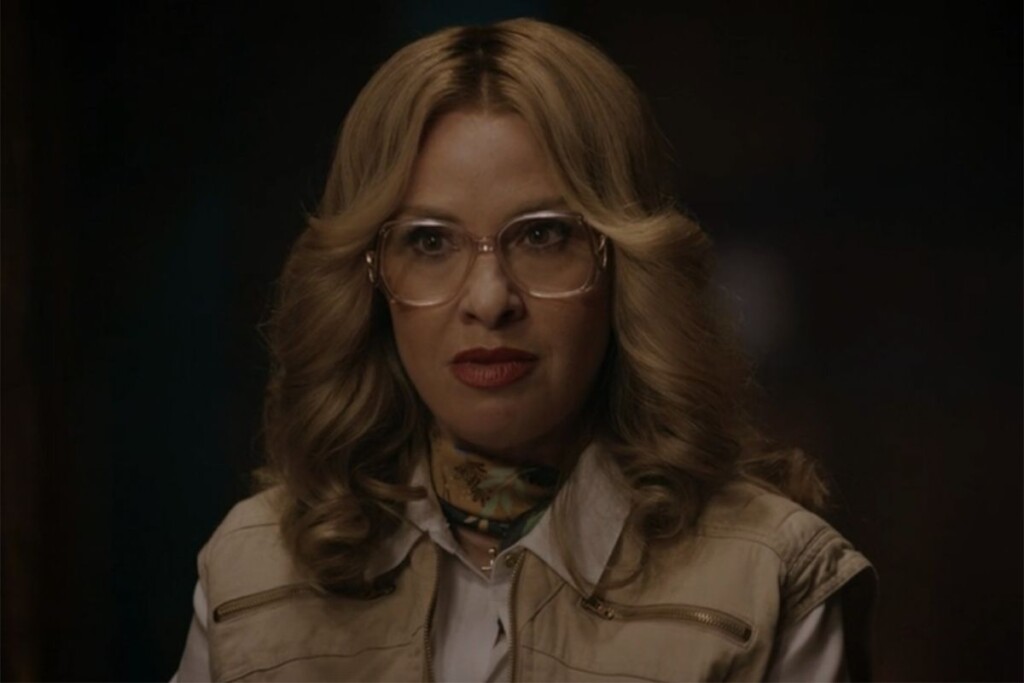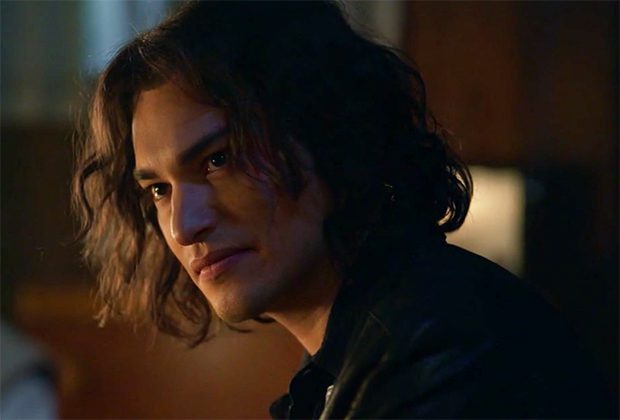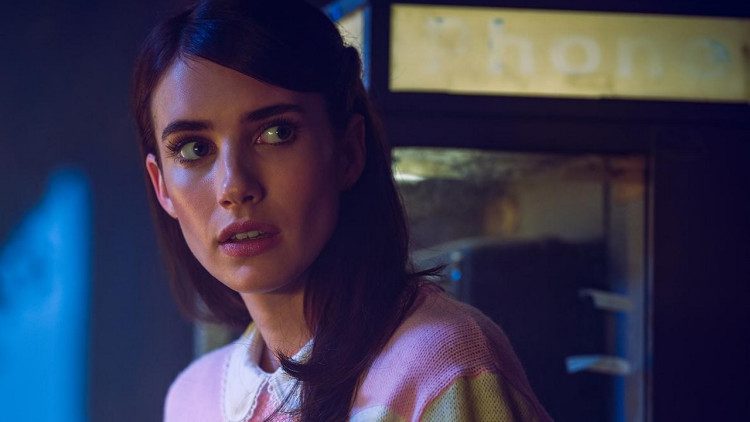Well, that was a lot, wasn’t it? In terms of place-setting episodes, you’re not likely to find one as entertaining and engrossing as “Mr. Jingles.” But it would be understandable if this is the point at which some viewers jump ship from American Horror Story: 1984. After all, a lot went down here. There are not one but two serial killers at Camp Redwood! And a ghost! I have always been of the mind that AHS is the most successful when it goes totally for broke. Sure, it can be hit and miss, but even then: the hits are pretty great, and the misses are at least entertaining.
“Mr. Jingles” is more of a continuation of last week’s premiere than a sequel to it, much the same way that Halloween and its sequel unfold over one long night. Also like Halloween is the Dr. Loomis-type character, Karen Hopple, and her mission to track down Mr. Jingles. She follows him to the camp and warns Margaret. In the first scene to indicate that Margaret is far more complex than her hellfire-and-brimstone demeanor suggests, she flat-out refuses to close the camp. “I survived him once,” she says. “If he’s stupid enough to come here, he won’t survive me.” Margaret refusing to close the camp is a foregone conclusion, but it doesn’t turn her into a villain. Her reasoning makes sense: she doesn’t want to live in fear. Leslie Grossman is incredible in this episode (Margaret might be the secret MVP of 1984), and this scene is her first chance to shine.

Back at the cabin, people are still not believing Brooke’s story. This is frustrating, but it’s part of every horror movie, and besides, they’ve only known Brooke for a day. She very well might be the type of person to make up a murderer for attention. Emma Roberts and Billie Lourd shine in their scene together, which is intimate even before Montana kisses Brooke. Montana gets an excellent monologue, and Brooke reveals even more of her tragic past: the man she was supposed to marry killed her father, the best man, and himself at the wedding, convinced that Brooke and the best man had slept together. This is the earliest scene that might have viewers worried that the show is going overboard, which it is, in the best possible way. But it entwines Brooke’s frustration with her trauma; the last time someone didn’t believe her, three people died. Brooke is so far from the archetypal Emma Roberts role that it’s thrilling just to watch her on screen. Maybe it beggars belief that her life has been this over-the-top tragic, but it adheres to a tradition in slasher movies; just think of Halloween‘s Laurie or A Nightmare on Elm Street‘s Nancy.
Is there too much going on in “Mr. Jingles”? Yeah, probably. You could excise the subplot about Xavier’s exploitation at the hands of Blake. It’s interesting, and Cody Fern does nice work in one of Xavier’s non-smartass moments. But what we get out of it is a Porky’s reference, and a pretty decent kill involving a skewered eye. If nothing else, it deepens and interrogates Mr. Jingles’ motivation. Did he kill Blake because he was in the way, or because he was spying on the showering male counselors? And why wouldn’t he chase after Xavier? Mr. Jingles is interesting for what he doesn’t do as much as for what he does.
For an episode where not much really “happens,” “Mr. Jingles” does admirable work in establishing what kind of universe 1984 will be playing with. It’s not just an homage to/parody of/riff on ’80s slasher flicks – although it certainly is that – it’s also incredibly strange. This episode sets up two big plot points, one of which is a left-field twist that really shakes things up. The hiker (whose name is Jonas) we met last week is a ghost, who keeps coming back every time he’s killed. When Richard Ramirez nears him, brandishing his hooked knife, Jonas shouts, “Wait, I don’t die here!” It’s an interesting line, one that invites a metafictional approach to the material, as if Jonas knows he’s in a slasher movie and needs everyone else to abide by the rules. Puzzlingly, he doesn’t accept that he’s a ghost until Margaret confirms it for him, so it’s not clear as of yet what kind of rules Jonas is playing by. It’ll be fun to find out, though.

That might be the biggest twist of the episode, but it wasn’t even the best part. No, that would be the bravura scene with Richard Ramirez and Margaret. Ramirez is waiting for her in her cabin, demanding to know about Jonas. What should be a scary scene is turned on its head, as Margaret is unimpressed by Richard, and plainly not afraid of him. It unmans him, and before long, a camp counselor is drinking tea with the Night Stalker. Leslie Grossman completely commands this scene, and in the aftermath, it becomes clear that she owns the episode as well.
Grossman imbues Margaret with hope, understanding, and a certain deranged menace. She’s not surprised that Richard has killed people before, and soon the two have entered into a dialogue about freedom, granted by whatever deity they worship. Zach Villa makes a good foil for Grossman; he understands that this is her moment, and he’s more of a reactive player once Margaret commandeers the conversation. He’s no slouch, though, and there’s an unexpected sexual tension between the two. In the episode’s quietest WTF moment, Margaret basically sics Richard on Mr. Jingles, adding, “I must insist that you don’t murder anyone along the way.”
So at the end of what could have been a sluggish, obligatory place-setting episode, 1984 has introduced ghosts and one serial killer hunting another. It’s deepened three of its main characters (Brooke, Margaret, and Xavier). And most importantly, it’s turned American Horror Story into appointment viewing for the first time in years.
4/5

